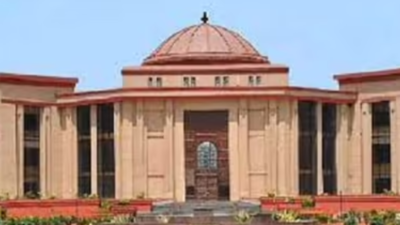ARTICLE AD BOX

RAIPUR: The Chhattisgarh High Court affirmed that acts of sexual assault or harassment against children must be dealt with stringently, leaving no room for leniency under the Protection of Children from Sexual Offences (POCSO) Act.
The court made this observation while upholding the conviction and sentence of three men involved in a gang rape case in Makdi village, Kondagaon district.The court observed that a minor subjected to sexual abuse requires greater protection than an adult victim, as an adult may still be able to endure social ostracism and mental harassment inflicted by society, whereas a minor is far less equipped to cope. Most crimes against minors often go unreported, as the perpetrator is frequently a family member or a close acquaintance. Therefore, a child victim needs special protection, and no leniency can be extended to an accused found guilty under the POCSO Act, 2012, especially when the offence is proven by adequate evidence before a court of law.A division bench of Chief Justice Ramesh Sinha and Justice Bibhu Datta Guru delivered a common judgment on three criminal appeals filed by three accused. The appellants challenged the judgment dated August 25, 2021, passed by the Additional Sessions Judge (FTC) Kondagaon. The Special Judge convicted them under Section 6 of the POCSO Act, sentencing each to 20 years of rigorous imprisonment and a fine of Rs 5,000, with an additional three years of rigorous imprisonment in default of payment.
The case dates back to April 26, 2019, when the victim, a minor, and her friend went to a field near a wedding venue in Makdi village. Four boys gagged and dragged the victim to a field, where they sexually assaulted her and threatened to kill her. The victim identified the accused with the help of mobile torchlight. Following her complaint, a case was registered under Sections 376(D), 506 of the Indian Penal Code, and Sections 4, 6 of the POCSO Act.The court verified the victim's age, based on her father's statement and school records, confirming she was 13 years old at the time of the incident, falling under the definition of "child" as per Section 2(d) of the POCSO Act. Medical evidence also corroborated that sexual intercourse occurred within 24 hours of her examination.The court reiterated that the testimony of a prosecutrix in sexual offence cases does not require corroboration if it inspires confidence, citing previous Supreme Court rulings.
The victim's consistent account to her parents, villagers, and the trial court, along with the corroborating statements of an eyewitness and other prosecution witnesses, were key to the conviction. The FSL report also confirmed the presence of semen stains, supporting the sexual assault.The High Court observed that the prosecution successfully proved beyond reasonable doubt that the victim was a minor at the time of the incident and that the accused committed aggravated penetrative sexual assault by gang-raping her. The court found no illegality or irregularity in the findings recorded by the Sessions Judge.The appeals were dismissed, and the conviction and sentence awarded by the trial court were upheld.



.png)
.png)
.png)
















 4 hours ago
3
4 hours ago
3









 English (US) ·
English (US) ·